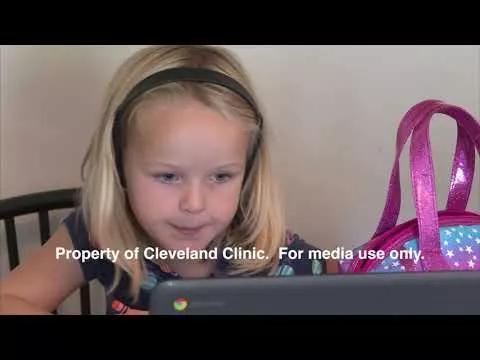A new survey from the CDC highlights how virtual learning can be damaging to a child's mental health. A psychologist offers advice for parents.

Cleveland Clinic News Service | 216.444.0141
We’re available to shoot custom interviews & b-roll for media outlets upon request.
CCNS health and medical content is consumer-friendly, professional broadcast quality (available in HD), and available to media outlets each day.
images: 0
video: 3
audio: 2
text: 2
Content is property of Cleveland Clinic and for news media use only.
CLEVELAND – A recent survey from the CDC is raising some concerns about virtual learning. Researchers found it can actually be damaging to a child’s mental and emotional health.
“When everything sort of stopped at first, we thought, ‘This is going to be brief, we can all handle this. We can do six weeks.’ And then the six went to twelve and then four months and then six months, to where it got really discouraging for a lot of kids,” said Vanessa Jensen, PsyD, child psychologist for Cleveland Clinic Children’s.
The CDC survey looked at more than 1,200 parents with children between the ages of 5 and 12 years old.
Researchers discovered kids who were doing virtual learning full-time or in a hybrid model, were more likely to struggle with their mental, emotional and physical health. That was due in part to lack of socialization, less physical activity and not spending as much time outside.
The survey also showed virtual learning had a negative impact on parents. They reported experiencing emotional distress, along with other issues like job stability concerns and child care challenges.
Dr. Jensen said a lot of parents are having a hard time right now and offers some advice.
“My big message tends to be for parents to take care of themselves and not to be too hard on themselves. Parenting is hard by itself and this has just thrown all of us, no matter what age your kids are. Mine are adults, and it still brings a different level of worry and anxiety,” she said.
Researchers from the study suggested more needs to be done to ensure kids can safely return to the classroom. They also said students learning virtually may require additional support to help them cope.